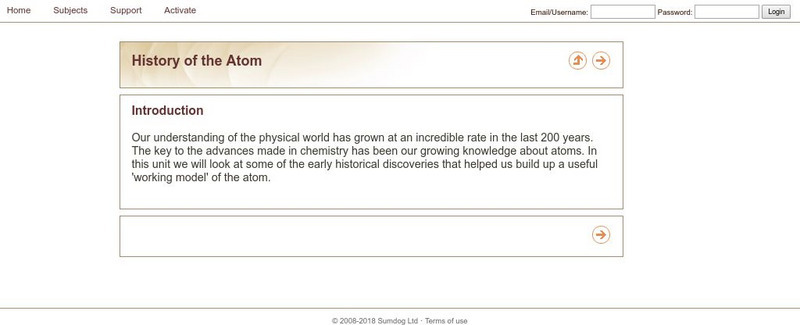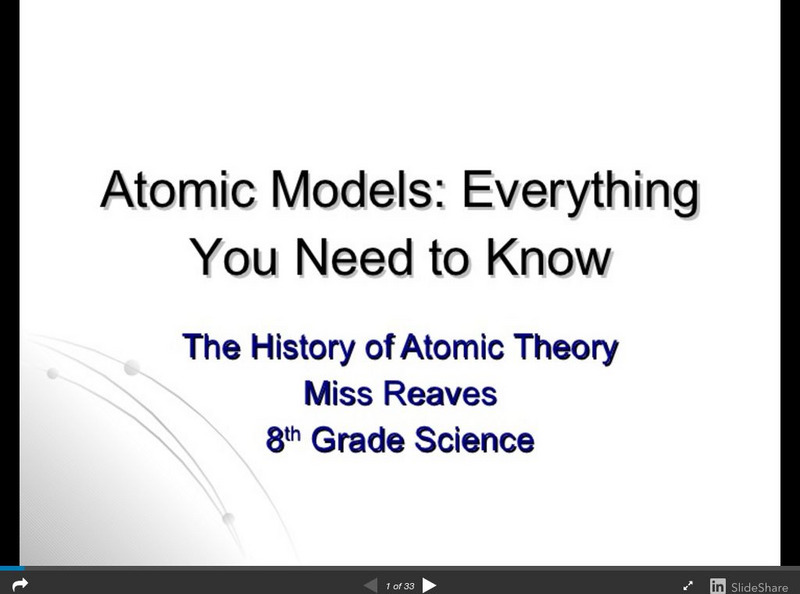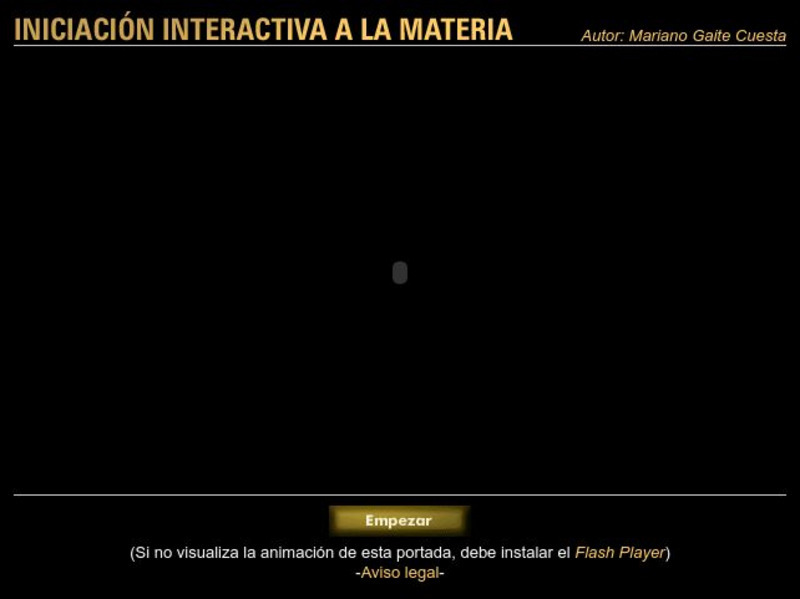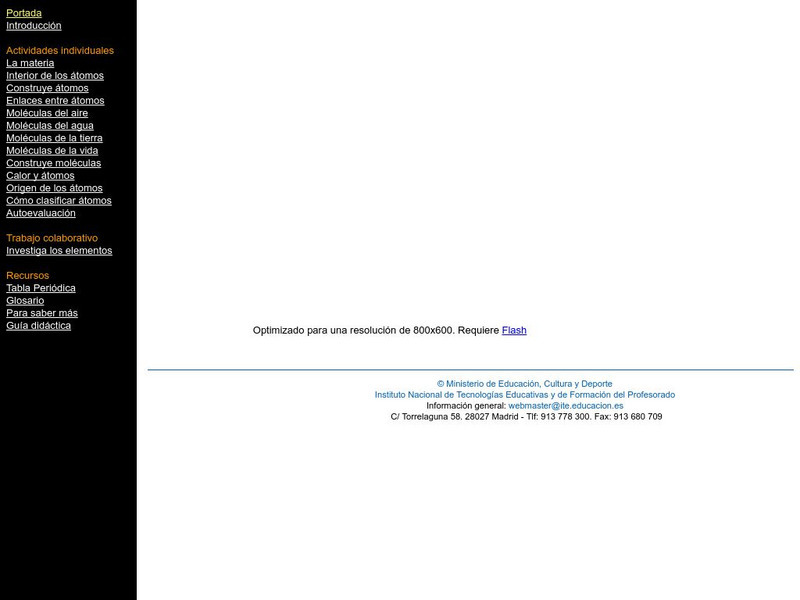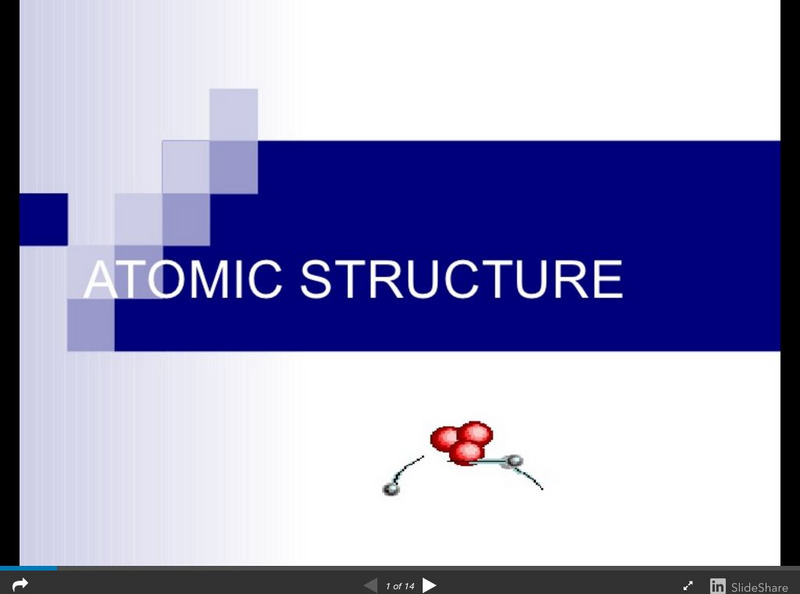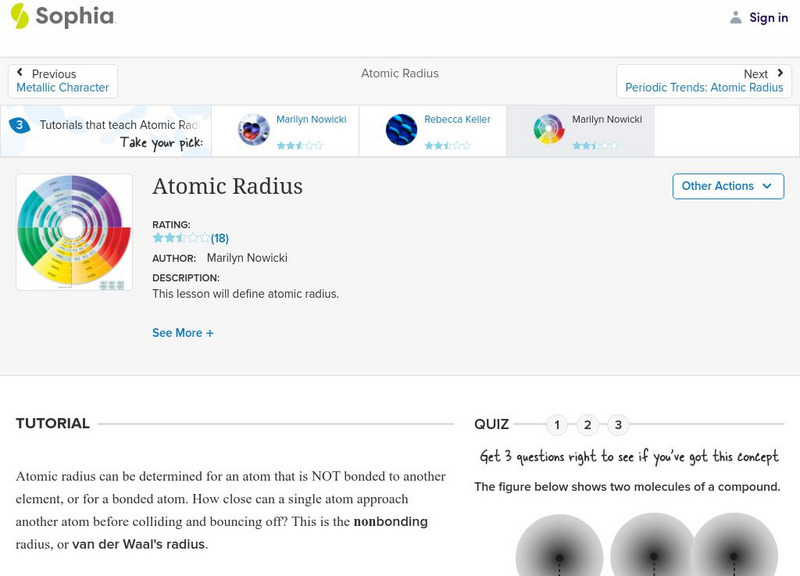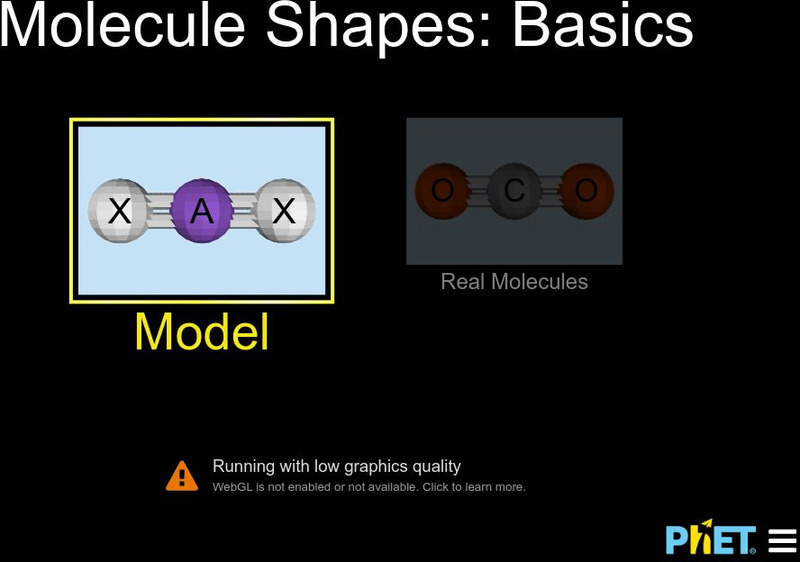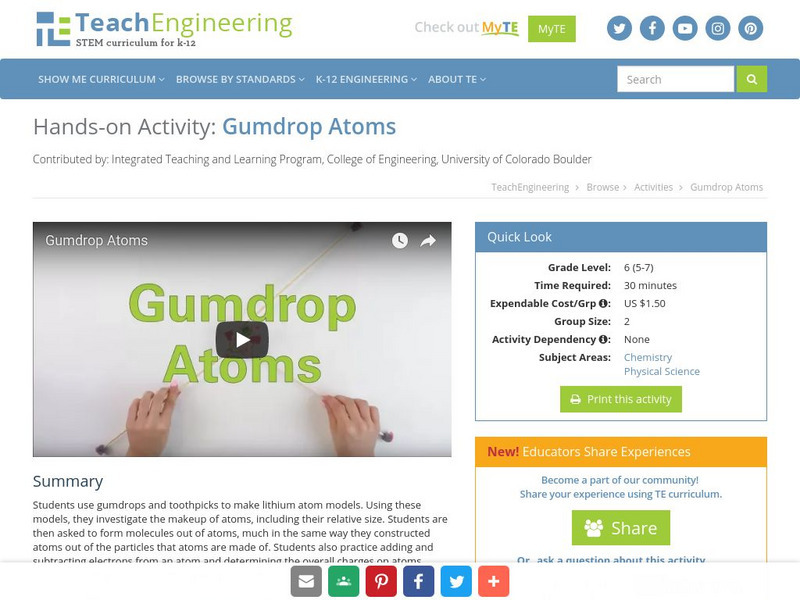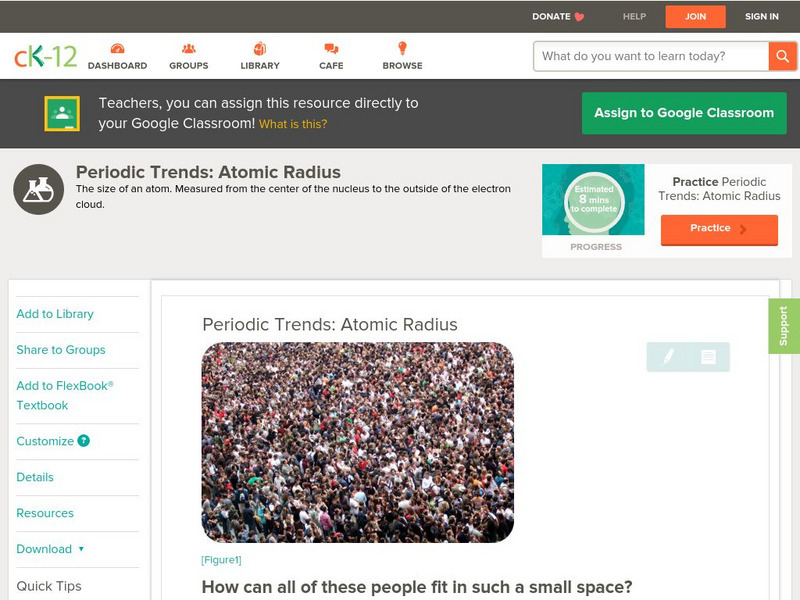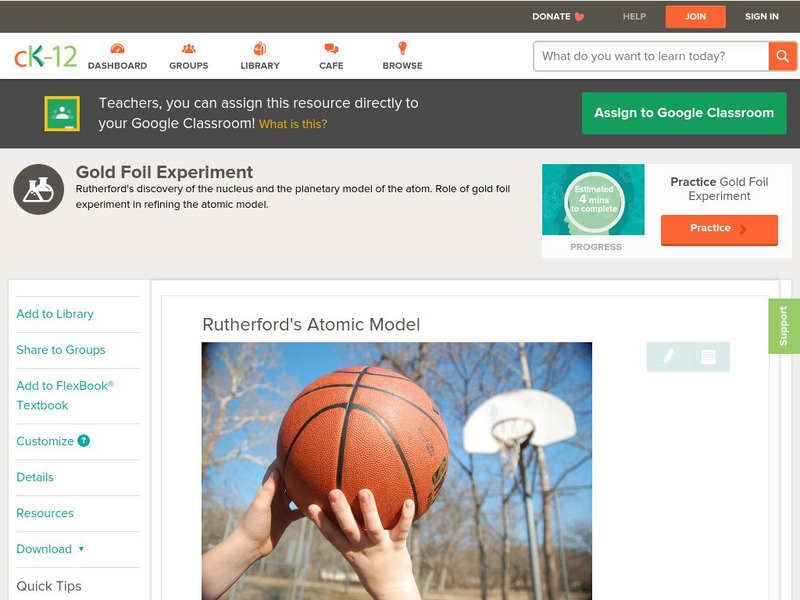Other
Crocodile Clips: Absorb Chemistry: History of the Atom
A tutorial that presents models of the atom proposed by John Dalton, J.J. Thomson, Ernest Rutherford, and Niels Bohr. Each is supported by an animated illustration. Includes comprehension questions and a quiz at the end.
Other
Science Alive: What Is Organic Chemistry?
This reading/lesson plan introduces students to the concept of organic chemistry.
Other
Science Alive: Synthetic vs. Natural: What's the Difference?
Through this reading, students will learn that a substance's properties arise from its molecular structure, not from how it's made (i.e., synthesized by people or found in nature). There is no fundamental difference between natural and...
Other
Science Alive: The Many Faces of Steroids
This reading is an introduction to the great variety of steroids and their many different uses.
Quia
Quia: Chemical Bonds (Ionic and Covalent) Quiz
This is 21-question multiple choice quiz over chemical bonds was written for a 7th-grade science class.
Scholastic
Scholastic: Study Jams! Science: Matter: Atoms: Protons, Neutrons, Electrons
A video and a short quiz on the parts of an atom, the periodic table, and molecules.
Other
Greek Philosophy: Leucippus and Democritus
This article provides an overview of the atomistic philosophy of the pre-Socratic philosophers Leucippus and Democritus in the 5th and 4th centuries, BCE.
Tom Richey
Slide Share: Atomic Models: Everything You Need to Know
A detailed slideshow for Grade 8 students that looks at the history of our understanding of atoms. Looks at the ideas presented by Democritus, John Dalton, J.J. Thomson, Ernest Rutherford, and Niels Bohr, and the modern-day wave model. A...
Ministerio de Educacion, Cultura y Deporte (Spain)
Cnice: Iniciacion Interactiva a La Materia
Matter is anything that has mass and occupies a space. In this site you will find a lot of illustrations and interactive activities dealing with matter.
Ministerio de Educación (Spain)
Ministerio De Educacion: Viaje Al Interior De La Materia
These interactive materials will help you to understand how matter is made up and will help you expand your knowledge on matter. You will find an evaluation at the end.
Tom Richey
Slide Share: Atomic Structure
Slideshow looking at the history of models of the atom, including those proposed by John Dalton, J.J. Thomson, Ernest Rutherford, Niels Bohr, and James Chadwick. Discusses subatomic particles, including the numbers of protons, neutrons,...
Sophia Learning
Sophia: Models of the Atom: Lesson 3
Describe how the model of the atom advanced as scientific knowledge increased. This lesson is 3 of 3 in the series titled "Models of the Atom."
Sophia Learning
Sophia: Subatomic Particles: Lesson 2
Describe the $ifference between the subatomic particles, including their masses, locations, and charges. This lesson is 2 of 7 in the series titled "Subatomic Particles."
CK-12 Foundation
Ck 12: Evolution of the Atomic Model
[Free Registration/Login may be required to access all resource tools.] Students take a closer look at how our understanding of the atom has evolved over time.
Sophia Learning
Sophia: Atomic Radius: Lesson 3
This lesson will define atomic radius. It is 3 of 3 in the series titled "Atomic Radius."
University of Colorado
University of Colorado: Ph Et Interactive Simulations: Molecule Shapes: Basics
Students studying molecule shapes will better understand its concepts with this virtual experiment that tests how a molecule's shape changes due to repulsions between atoms. Learning is further enhanced by building molecules in 3D.
American Chemical Society
Middle School Chemistry: Energy Levels, Electrons, and Ionic Bonding
Explore ionic molecular bonds and how electrons and their energy levels come into play.
TeachEngineering
Teach Engineering: Gumdrop Atoms
In this activity, students make a model of a lithium atom using gumdrops and toothpicks. Using this model, they investigate the makeup of an atom, including its relative size. Students also practice adding and subtracting electrons from...
CK-12 Foundation
Ck 12: Chemistry: Periodic Trends: Atomic Radius
[Free Registration/Login may be required to access all resource tools.] Defines atomic radius and explains trends in atomic radius.
Mocomi & Anibrain Digital Technologies
Mocomi: Molecules
When two or more atoms combine they give rise to a molecule. A molecule can be made up of many atoms of the same element. There are 112 elements known to man, so can you imagine the different permutations and combinations of molecules...
CK-12 Foundation
Ck 12: Physical Science: Rutherford's Atomic Model
[Free Registration/Login may be required to access all resource tools.] Rutherford's discovery of the nucleus and his planetary model of the atom.
CK-12 Foundation
Ck 12: Physical Science: Democritus' Idea of the Atom
[Free Registration/Login may be required to access all resource tools.] Introduction of the idea of the atom and the diversity of matter.
CK-12 Foundation
Ck 12: Plix: Build Some Helium: Atoms to Molecules
[Free Registration/Login Required] Build your own helium atom and make sure it has the correct number of protons, electrons, and neutrons on this site. Site also includes a small quiz on the topic.
CK-12 Foundation
Ck 12: Plix: Balancing Chemical Reactions
[Free Registration/Login Required] Demonstrate a normal chemical reaction by dragging atoms from the products to create the reactants in this chemical equation.
